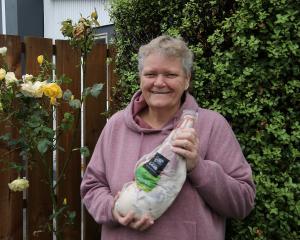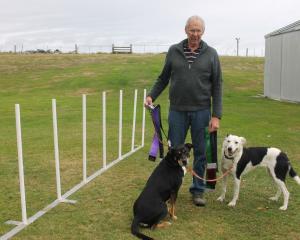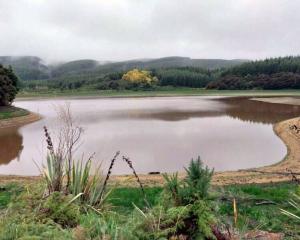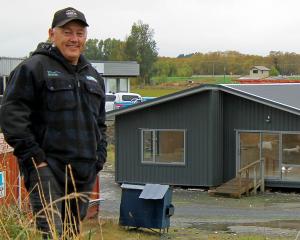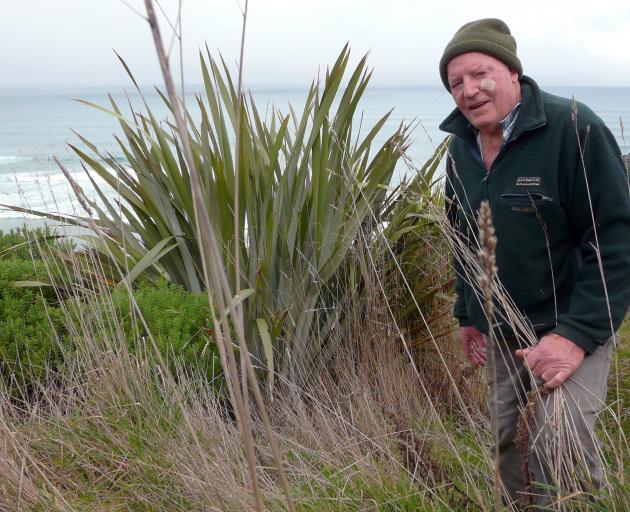
"Well-intentioned" conservation activity at the Long Pt yellow-eyed penguin colony in the Catlins is proving detrimental to the penguins themselves, a local trust member claims.
Yellow-eyed Penguin Trust Long Pt advisory group member Alan Burgess, of Purakaunui Falls, told the ODT this week he was "frustrated" with a lack of "common sense" shown by the trust during recent years.
Mr Burgess claimed "well-intentioned, but misguided" activities and decisions carried out by and on behalf of the trust had actually contributed to a decline in numbers of the nationally endangered species at the coastal reserve.
The yellow-eyed penguin population at Long Pt has dropped from 50 to 17 over the past five years and a range of factors have been blamed, from modern commercial fishing practices to diseases such as diphtheria.
But Mr Burgess said a visit to the reserve "showed you all you need to know," about some of the more culpable - and, he believed, fixable - reasons for the decline.
"When [the trust] acquired the site about eight or nine years ago, they put up a deer fence and shut out the sheep, with the idea of returning it to nature. Well, now it’s hard enough for a 6ft human to hack through the grass, let alone a wee penguin trying to get to its nest."
Mr Burgess said he had also seen the penguins disappear from a favourite "sunbathing" site at the western edge of the reserve, now covered in thick undergrowth and "too difficult" for the birds to access.
When he had tried to raise the issue with the advisory group, a "lack of scientific evidence" on the effects of undergrowth density on penguin access had been cited.
However, nearby non-reserve penguin nesting locations where sheep continued to graze remained well populated by breeding pairs, he said.
"I’m not saying it’s the only factor affecting population decline, but I don’t need science to tell me what’s common sense. Let the sheep keep the grass down and penguins can get to their nesting sites."

Yellow-eyed penguins were "private, shy" birds, he said, and sometimes needed simply to be left alone "in nature".
"The trust takes the babies away when they’re underfed, feeds them up and brings them back. Now that’s all very well, but if you were a parent and your kid was taken away from a particular home, would you want to return there and have more?
"It’s not surprising they’ve all moved up the coast."
Mr Burgess also had reservations about a new $190,000 field base the trust was planning for Long Pt.
"This is a special place for a lot of folk. Personally I’ve been coming here for more than 70 years rock fishing and penguin spotting, and to plonk a crib and four-bay shed right in the middle of it is just shocking.
"Why not look at getting the environment right for the penguins before splashing cash on humans yet again?"
When asked why he had not voiced his concerns directly to the trust, Mr Burgess, a retired farmer, said his and other members’ voices were being ignored.
"They just treat us like an ignorant bunch of cockies. You try and talk common sense but all you get is blank looks."
Mr Burgess said he had considered tendering his resignation to the trust but had been persuaded by allies to remain in place while he could.
"Trouble is you’d just get another yes-man installed, to the further detriment of the penguins. At the end of the day all we want to see is the wee creatures given a proper chance and left to get on with their business as far as possible."
The Yellow-eyed Penguin Trust was presented with Mr Burgess’s detailed concerns on Thursday, replying with the following statement.
"There is a Long Point/Irahuka advisory group that Alan is a member of, and to which he contributes. His contribution will continue to be welcome and appreciated."
Mr Burgess characterised the trust’s response as a further "avoidance of the facts".
"It’s just a fob-off. If they’re surprised when they turn round and there’s no penguins on the beach this year or next, so be it."



